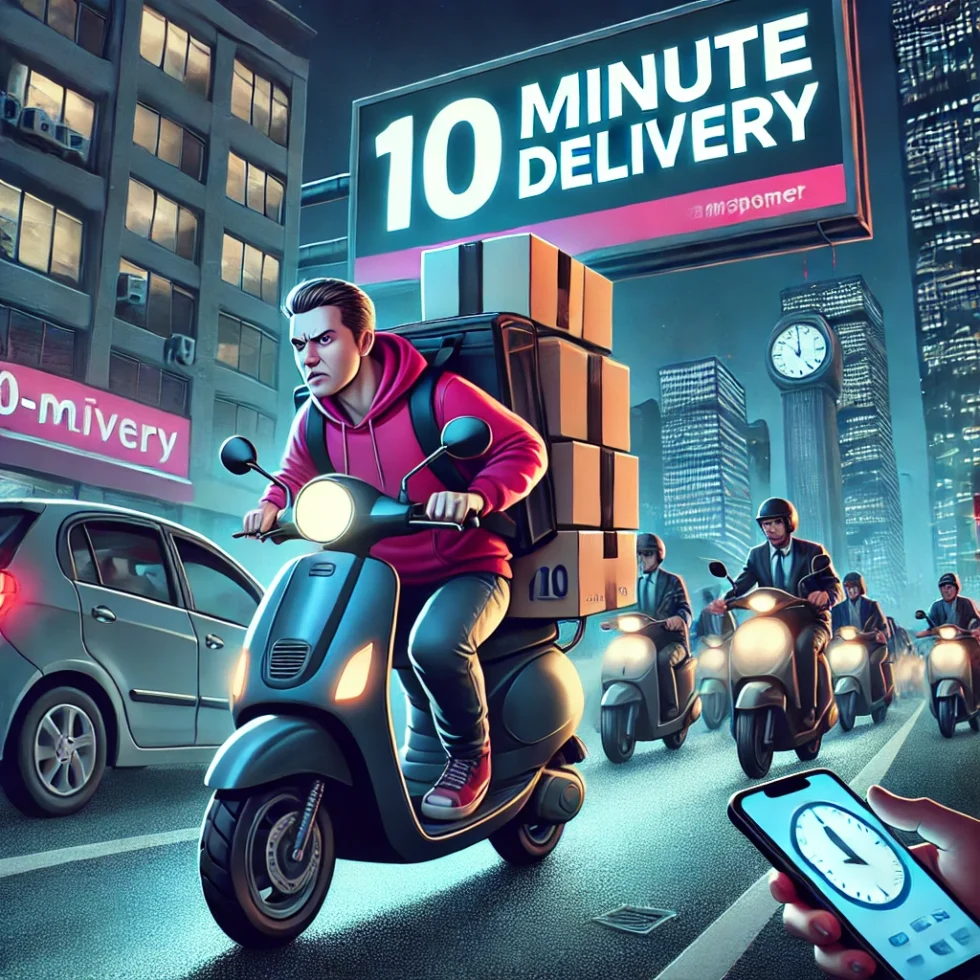
The Harsh Reality for Delivery Riders
While the idea of receiving your groceries, medicines, or even luxury items within 10 minutes sounds like magic, the pressure falls on the delivery riders. Studies indicate that nearly 43% of delivery riders have faced near-miss accidents due to the urgency of such deliveries. Many work double the hours prescribed by labor laws, earning just enough to sustain a basic living.
In a country like India, gig workers often earn higher than traditional jobs, but at what cost? The race against time forces them to speed through traffic, risking their lives for just a few extra rupees.
The Role of Marketing in Fueling the Craze
No customer initially asked for 10-minute delivery. Yet, marketing teams seized on statements like “I feel happy when my parcel arrives early” and turned them into a business model. Patterns emerged, demand was assumed, and suddenly, the promise of instant gratification became a competitive necessity.
However, does every product need to be delivered instantly? Essentials like medicines may benefit, but expanding the model to all categories seems more about market dominance than genuine consumer need.
The Health and Environmental Toll
Instant deliveries are changing not just our buying habits but also our lifestyle choices:
- Over-processed foods: Many instant food deliveries rely on highly processed, frozen, or freeze-dried ingredients to meet the demand. Experts warn that excessive consumption of such ultra-processed foods can have severe health implications.
- Sedentary lifestyle: With everything available at our fingertips, physical movement is declining. The human body is not built for endless luxury—always eating, rarely moving, and staying in controlled environments like AC rooms and cabs.
- Waste generation: Each order comes with packaging—plastic, brown bags, disposable containers—all contributing to a waste crisis that cities are struggling to manage.
The Bigger Picture: A Looming Healthcare Crisis
With poor eating habits, lack of movement, and increased waste production, we are heading toward a systematic failure in healthcare. An increase in hospital admissions due to lifestyle diseases is inevitable if this trend continues. The health capital of our nation is at risk, and the upcoming generations will bear the brunt of our choices.
Final Thoughts: Is There a Middle Ground?
Convenience is valuable, but not at the cost of safety, health, and sustainability. Businesses should reconsider whether speed should be prioritized over well-being. Consumers, too, need to make conscious choices—perhaps waiting an extra few minutes for a package can lead to a healthier, safer, and more sustainable future for everyone.





